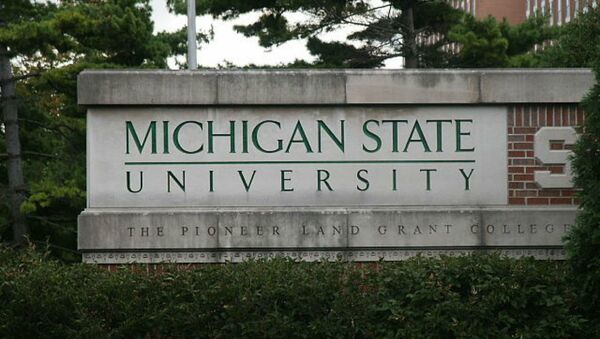Michigan State University (MSU) has changed the name of one of its campus buildings after discovering that it was named after a person who was reportedly a member of the Ku Klux Klan. Stephen S. Nisbet was the president of Michigan’s Education Association, a member of the state’s Board of Education, as well as a trustee at MSU and Alma College. The human resources building at MSU was named after him.
The first allegations against him were made in 2011 following the release of the book "Everyday Klansfolk: White Protestant Life and the KKK in 1920s Michigan". Now university officials claim they have discovered Nisbet’s KKK membership card at a library at Central Michigan University.
In a statement announcing the decision to rename the building, the university’s trustees said:
"While Mr. Nisbet’s dedication and contributions to the State of Michigan are significant, his involvement with the KKK cannot be ignored, and these activities directly conflict with the values and mission of Michigan State University".
However, Nisbet’s grandson, Stephen P. Nisbet, has strongly denied that his grandfather was somehow linked with the KKK and said that his grandfather had never talked about his affiliation with the group.
"I spent much time in my youth and later as an adult with my grandfather and my grandmother, and I have great respect and admiration for both of them", he said.
Stephen P. Nisbet stressed that the signature on the card that was found did not match that of his grandfather's and called for consultations with a historian.
Following MSU’s decision, Alma College, where Stephen S. Nisbet served as a trustee too, decided to rename a campus building named after him.
Commonly known as the KKK, the Ku Klux Klan primarily targeted African-Americans as well as immigrants, Jews, and homosexuals. The group has existed at different points in the history of the United States, the third and current manifestation of which emerged in the middle of the 20th century.
What’s in a name?
The protests against racial discrimination and police brutality that swept the United States at the end of May and then went global sparked debates over whether to rename streets and buildings that were named after people who were slave traders, slave owners, or held expressed racist views. The discussion has been raging not only in the United States, where universities and colleges have recently been renaming their buildings, but also in European countries such as the United Kingdom and Germany.
President Donald Trump has harshly criticised attempts to rename buildings or take down statues, calling supporters of the initiative "revisionists" who are trying to change US history.
"I’m not a believer in cancel culture – the good or the bad. If you don’t study the bad it could happen again", Trump said.


